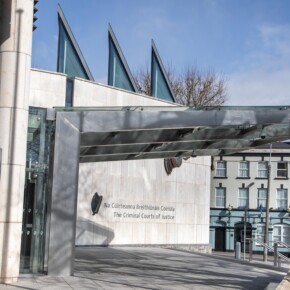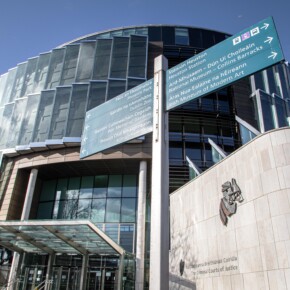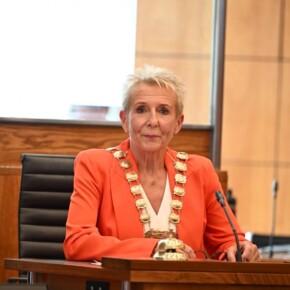The People’s Letters Page
Padraig Conlon 08 Oct 2021
Here is this week’s People’s Letters Page…
Dear Editor,
Like many other severely disabled groups, the brain injured are abandoned in their homes and forgotten about.
This leads to vegetation, a huge drop in self esteem and more severe mental health problems.
Common complaints is that sufferers with limitations such as brain injury need the opportunity to meet people they have something in common with and can talk to each other about their difficulties and make pals and also learn new living skills, enjoy some artwork, current affairs, light hearted poetry and music.
It is known among experts who work with brain injured people that they benefit hugely from group activities as the brain is then stimulated.
So come on all you with get up and go and fundraise and set up groups for the forgotten and very marginalised brain injured.
Its not nice to feel abandoned.
There was a local group in Clontarf which was treasured by members until the brain organisation asked very immobile people to go in to town which was impossible for them.
So we need a centre in Clontarf and other local areas too.
Remember us Dublin People readers.
Yours sincerely,
Maedbh,
Clontarf
Dear Editor,
I read with interest the recent article on the controversy over the Clonkeen College playing fields.
The publicity for the campaign against the development of these fields is to be welcomed.
However, I’d like to correct a misleading impression part of the article created.
You are technically correct when you state that the school’s BoM “retracted its opposition on the grounds that an all-weather playing pitch be developed as part of the complex”.
This does not tell the full story.
When the proposed sale, by the Christian Brothers, of lands at Clonkeen first became known, the whole school community opposed it.
That community consisted of the BoM, the college staff, the students and their parents and the local community.
However, the Edmund Rice Schools Trust, set up to look after the interests of CB schools, chose to support the sale by the religious order. ERST knew of the proposed deal for nearly a year before it informed the college.
It thereby abandoned its duty to the college and its community and proceeded to support a scheme that would gain it several million euro.
The then BoM mounted a legal case against the sale. Whether though negotiation or pressure that legal challenge collapsed before a court judgement was made.
A subsequent agreement promised to finance the creation of a single all-weather pitch to the tune of a million euro as compensation to the college, for the loss of a huge area of its playing fields.
The Christian Brothers and ERST were to earn multiples of the college’s compensation through the deal.
The deal also prevented any future BoM from opposing any development. Hence, the silence from management and the BoM that has been so commented upon by the local community.
The chairman of the current BoM is an employee of ERST and unlikely to break this silence.
The school community I spoke of earlier still exists.
Despite the silence of ERST, which has shown itself no friend of Clonkeen College, and despite the similar silence of the school’s management this community, consisting of students, parents, past pupils, teaching and non-teaching staff, is completely against the development of its playing fields.
In this, it is at one with the local community and local political representatives.
Jim Byrne (Teacher, Retired)
Dun Laoghaire
Dear Editor.
A leading apologist for the greyhound industry has highlighted the possible impact on one’s mental health of being denied the right to enjoy hare coursing or greyhound racing, or whatever happens to be one’s favourite hobby.
He also emphasized that all sports, and not only these, have a few participants who misbehave or break the rules.
As somebody who has campaigned against a number of practices involving cruelty to animals, I wish to assert that I would not want anything I say to impact negatively on someone’s mental health.
My criticism is motivated solely by concern for the welfare of animals. I make it in the sincere hope that my voice, in conjunction with others, will make a difference, however small, in improving the lot of sentient beings that are made to suffer for human gain or enjoyment.
But I would remind coursing and track racing fans that ill-treatment of animals, whether in the greyhound industry or society at large, can also have implications for mental health.
I know of several people, and not just campaigners, who have been severely impacted by animal cruelty.
Many greyhound owners do not in any way ill-treat their dogs, but the problem with the industry is not even the minority who do act irresponsibly: It’s the over-breeding that leads to so much abandonment and killing of greyhounds, and their export to dodgy jurisdictions.
And hare coursing is cruel from start to finish regardless of what thoughts occupy the minds of organizers or spectators.
A hare that is mauled or has its bones crushed is not comforted by the fact that nobody wished for that particular outcome.
The greyhound industry apologist asked a question often posed by people defending controversial practices involving animals: If coursing or track racing went, what would be next?
The banning of bear-baiting in 1835 was condemned at the time as the “thin end of the wedge” with other liberties sure to be restricted.
But who would defend bear-baiting now?
I’m sure that when the tossing of virgins into Volcanoes was banned, critics said something like: “What next…will they ban public executions or the sending of young fellas up chimneys?
Before they’ve finished they’ll be allowing any man to vote, and after that even women, who might then insist, God forbid; that they’re equal to men. Damned liberals are ruining everything!”
Some vintners predicted that the ban on smoking in pubs and restaurants would deal a devastating and irreversible blow to our social lives. It didn’t.
Even the most obviously positive and healthy change in human behavior can be packaged as an attack on liberty, tradition, or the social order and denounced from the rooftops.
I prefer to think of it as progress.
Thanking you,
John Fitzgerald
Dear Editor,
While I have nothing but respect and appreciation for the sterling work done by our frontline workers during the pandemic, I don’t understand why public sector workers across the board are set to be rewarded with a one-off payment.
Civil service workers are the only sector of our workforce that’d didn’t get laid off or didn’t see their life’s work destroyed.
They knew they would have a job once the pandemic was over.
They have already been sufficiently rewarded in my opinion.
Yours sincerely,
Gerard McLoughlin,
Donabate











